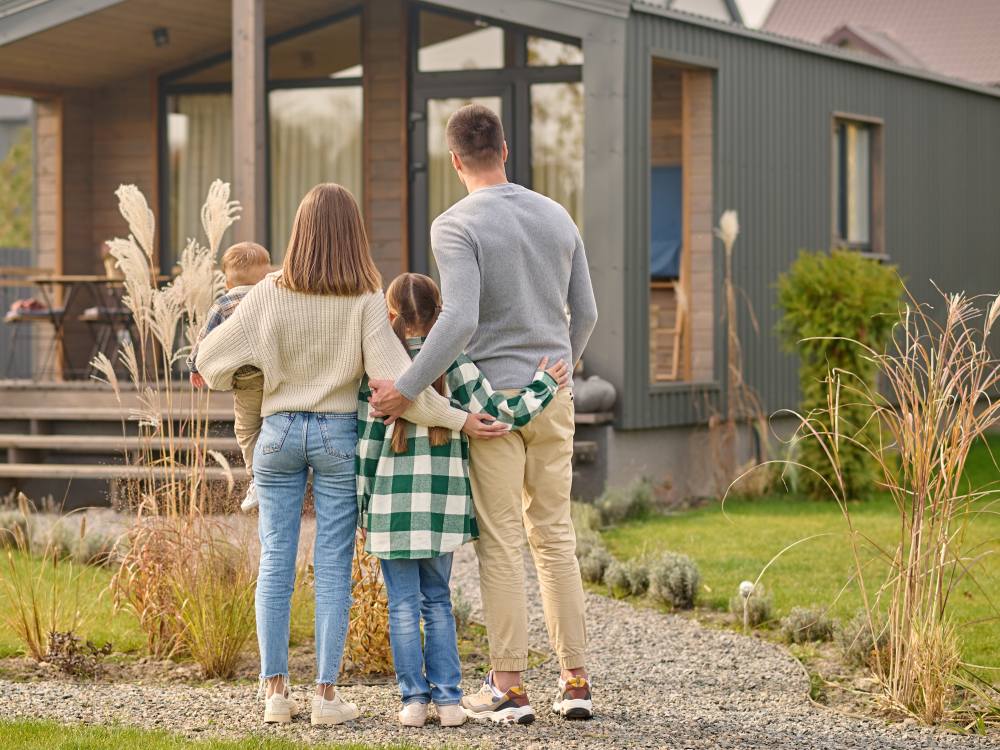
A single-family home offers many advantages – more space, privacy, and individual design options. Whether it’s a classic house, energy efficiency remains a core topic. However, especially when it comes to energy efficiency, the construction method and equipment play a central role in ongoing costs. Those who want to save costs in the long term and live more sustainably should aim for the lowest possible energy consumption, which directly impacts their wallet. Even when buying a single-family home, it’s worth looking at energy performance indicators, especially if you’re looking for a single-family home nearby.
Older properties often need to catch up in terms of insulation or heating technology, which unnecessarily increases energy consumption. New or renovated houses, such as a high-quality house, on the other hand, usually already meet high standards – a clear advantage for the environment and your wallet.
Your path to an energy-efficient dream home starts here: Discover the possibilities at ATLAS HAUS now!
Optimizing Electricity Consumption in a Single-Family Home
Electricity consumption in a single-family home is a significant cost factor that is strongly influenced by individual habits and the choice of appliances. Especially in households with multiple people, electric cars, or modern Smart Home systems (which can also help optimize consumption with clever control), energy demand otherwise increases noticeably. The average electricity consumption in a single-family home is approximately 4,000 to 5,000 kWh per year, but can vary greatly and serves as a guide.
Utilizing electricity saving potentials:
- Use of energy-efficient household appliances (A+++).
- LED lighting and motion detectors for demand-driven use.
- Photovoltaic system with efficient solar modules for self-generated electricity as a sustainable source.

The targeted combination of these measures significantly reduces electricity costs and thus optimizes electricity consumption in a single-family home. Each of these optimizations actively contributes to reducing energy costs. A true solar house goes even further in terms of self-sufficiency.
Gas Consumption in a Single-Family Home: Heating Smartly
For a gas single-family home, gas consumption in the single-family home is a significant factor, whereby good insulation of the building can work wonders here. Depending on the building’s condition and heating system, annual consumption can vary greatly. On average, a single-family home consumes around 20,000 kWh of gas per year – primarily for heating and hot water. This value underscores the importance of efficient heating methods. With modern condensing technology, underfloor heating, or the use of heat pumps, ideally in combination with a heat storage unit, these values for gas consumption in a single-family home can be significantly reduced. Intelligent thermostats, often part of a Smart Home system, also help to efficiently control gas consumption by adjusting heating output as needed.
Security and Autarky: Emergency Power Generator for the Single-Family Home
Another important topic is emergency power supply. An emergency power generator for single-family home owners can be a valuable safeguard in the event of power outages. Especially in regions with unstable power supply or frequent use of electric heating systems, investing in such a backup system is recommended to cover critical loads.
Advantages of an emergency power generator:
- Supply security in case of grid failure.
- Operation of refrigerator, heating, or medical devices.
- Increased independence from the public grid.
These aspects combined significantly increase the autonomy and security of the household. For efficient use, the generator should be tailored to the individual, especially essential, electricity consumption in the single-family home.
Energy Efficiency Pays Off: A Look at Modular Home Costs
An energy-efficient single-family home not only offers more comfort but also significantly reduces your running costs and actively contributes to climate protection. There are many ways to improve the energy balance: from reducing electricity and gas consumption to using an emergency power generator. Those who pay attention to high energy efficiency when buying a house, for example, a single-family home nearby, or are interested in modern building forms such as modular homes, create the best conditions for a sustainable home. It is particularly important to carefully check the modular home costs and consider options such as Modular houses Atlas Haus to pave the way for a true solar house. Concepts such as “house within a house” or an energy-efficient mid-range house are also worth considering to further optimize your energy consumption.
